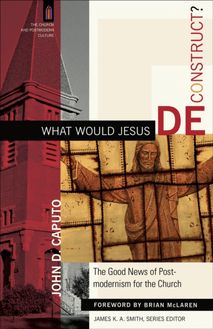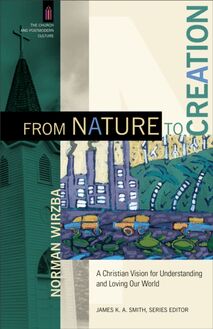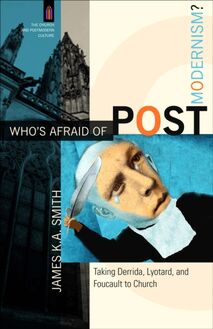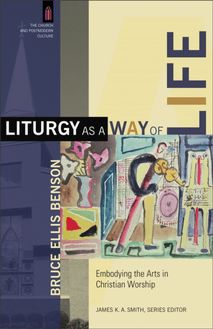-
 Univers
Univers
-
 Ebooks
Ebooks
-
 Livres audio
Livres audio
-
 Presse
Presse
-
 Podcasts
Podcasts
-
 BD
BD
-
 Documents
Documents
-
- Cours
- Révisions
- Ressources pédagogiques
- Sciences de l’éducation
- Manuels scolaires
- Langues
- Travaux de classe
- Annales de BEP
- Etudes supérieures
- Maternelle et primaire
- Fiches de lecture
- Orientation scolaire
- Méthodologie
- Corrigés de devoir
- Annales d’examens et concours
- Annales du bac
- Annales du brevet
- Rapports de stage
La lecture à portée de main
Vous pourrez modifier la taille du texte de cet ouvrage
Découvre YouScribe en t'inscrivant gratuitement
Je m'inscrisPolitics of Discipleship (The Church and Postmodern Culture) , livre ebook
Découvre YouScribe en t'inscrivant gratuitement
Je m'inscrisEn savoir plus
Vous pourrez modifier la taille du texte de cet ouvrage
En savoir plus

Description
Sujets
Informations
| Publié par | Baker Publishing Group |
| Date de parution | 01 septembre 2009 |
| Nombre de lectures | 0 |
| EAN13 | 9781441206473 |
| Langue | English |
Informations légales : prix de location à la page 0,0806€. Cette information est donnée uniquement à titre indicatif conformément à la législation en vigueur.
Extrait
THE POLITICS OF DISCIPLESHIP
James K. A. Smith, series editor www.churchandpomo.org
The Church and Postmodern Culture series features high-profile theorists in continental philosophy and contemporary theology writing for a broad, nonspecialist audience interested in the impact of postmodern theory on the faith and practice of the church.
Also available in the series
James K. A. Smith, Who s Afraid of Postmodernism? Taking Derrida, Lyotard, and Foucault to Church
John D. Caputo, What Would Jesus Deconstruct? The Good News of Postmodernism for the Church
Carl Raschke, GloboChrist: The Great Commission Takes a Postmodern Turn
Merold Westphal, Whose Community? Which Interpretation? Philosophical Hermeneutics for the Church
THE POLITICS OF DISCIPLESHIP
Becoming Postmaterial Citizens
GRAHAM WARD
2009 by Graham Ward
Published by Baker Academic a division of Baker Publishing Group P.O. Box 6287, Grand Rapids, MI 49516-6287 www.bakeracademic.com
Printed in the United States of America
All rights reserved. No part of this publication may be reproduced, stored in a retrieval system, or transmitted in any form or by any means-for example, electronic, photocopy, recording-without the prior written permission of the publisher. The only exception is brief quotations in printed reviews.
Library of Congress Cataloging-in-Publication Data Ward, Graham S.
The politics of discipleship : becoming postmaterial citizens / Graham Ward. p. cm. - (The church and postmodern culture) ISBN 978-0-8010-3158-8 (pbk.) 1. Christianity and politics. 2. Church and the world. 3. Postmodernism- Religious aspects-Christianity. I. Title. BR115.P7W35 2009 261-dc22 2009008075
Unless otherwise indicated, Scripture quotations are from the New Revised Standard Version of the Bible, copyright 1989, by the Division of Christian Education of the National Council of the Churches of Christ in the United States of America. Used by permission. All rights reserved.
Scripture quotations labeled RSV are from the Revised Standard Version of the Bible, copyright 1952 [2nd edition, 1971] by the Division of Christian Education of the National Council of the Churches of Christ in the United States of America. Used by permission. All rights reserved.
Scripture quotations labeled NIV are from the HOLY BIBLE, NEW INTERNATIONAL VERSION . NIV . Copyright 1973, 1978, 1984 by International Bible Society. Used by permission of Zondervan. All rights reserved.
Scripture quotations labeled KJV are from the King James Version of the Bible.
Scripture quotations labeled NKJV are from the New King James Version. Copyright 1982 by Thomas Nelson, Inc. Used by permission. All rights reserved.
Scripture quotations labeled GNT are from the Good News Translation-Second Edition. Copyright 1992 by American Bible Society. Used by permission.
For Rachel and Yazeed and in picem memoriam Marcella Althaus-Reid and Paul Fletcher
Since the theology of the world is . . . a theology of emerging political and social order, this theology of the world must be a political theology .
Johannes B. Metz
Contents
Series Preface
Series Editor s Foreword
Proviso
Acknowledgments
Introduction
Section 1: The World
1. Democracy: Crisis and Transformation
2. Globalization: When the World Is Not Enough
3. Postsecularity? The New Visibility of Religion
Section 2: The Church
4. Theological Introduction
5. The City and the Struggle for Its Soul
6. The Metaphysics of the Body
7. The Politics of Election and of Following
Series Preface
C urrent discussions in the church-from emergent postmodern congregations to mainline missional congregations- are increasingly grappling with philosophical and theoretical questions related to postmodernity. In fact, it could be argued that developments in postmodern theory (especially questions of post-foundationalist epistemologies) have contributed to the breakdown of former barriers between evangelical, mainline, and Catholic faith communities. Postliberalism-a related effect of postmodernism-has engendered a new, confessional ecumenism wherein we find nondenominational evangelical congregations, mainline Protestant churches, and Catholic parishes all wrestling with the challenges of postmodernism and drawing on the culture of postmodernity as an opportunity for rethinking the shape of our churches.
This context presents an exciting opportunity for contemporary philosophy and critical theory to hit the ground, so to speak, by allowing high-level work in postmodern theory to serve the church s practice-including all the kinds of congregations and communions noted above. The goal of this series is to bring together high-profile theorists in continental philosophy and contemporary theology to write for a broad, nonspecialist audience interested in the impact of postmodern theory on the faith and practice of the church. Each book in the series will, from different angles and with different questions, undertake to answer questions such as What does postmodern theory have to say about the shape of the church? How should concrete, in-the-pew and on-the-ground religious practices be impacted by postmodernism? What should the church look like in postmodernity? What has Paris to do with Jerusalem?
The series is ecumenical not only with respect to its ecclesial destinations but also with respect to the facets of continental philosophy and theory that are represented. A wide variety of theoretical commitments will be included, ranging from deconstruction to Radical Orthodoxy, including voices from Badiou to Žižek and the usual suspects in between (Nietzsche, Heidegger, Levinas, Derrida, Foucault, Irigaray, Rorty, and others). Insofar as postmodernism occasions a retrieval of ancient sources, these contemporary sources will be brought into dialogue with Augustine, Irenaeus, Aquinas, and other resources. Drawing on the wisdom of established scholars in the field, the series will provide accessible introductions to postmodern thought with the specific aim of exploring its impact on ecclesial practice. The books are offered, one might say, as French lessons for the church.
Series Editor s Foreword
J AMES K. A. S MITH
W hat do we do now ? This might be the first question of discipleship. It is the question asked by the disciples at the foot of the cross: The Messiah is dead. What do we do now? It is the question asked by the same disciples after the resurrection: He s alive! What do we do now? And it is the question asked by these same Jesus followers after the ascension: The King has left us. What do we do now?
If this is the first question of discipleship, it is also a perennial question of discipleship. If, as Kierkegaard suggests, every generation is contemporaneous with the Messiah-if every follower is a contemporary of the Teacher-then this question will be constantly asked anew. But in order to answer the question, we need to understand this now ; we need to grapple with the present. I have long appreciated the work of Graham Ward because I have always sensed that he is asking this basic question: What time is it? Theology, for Ward, is not an arcane game consumed with systematizing timeless truths; rather, it is the concrete and contemporary task of trying to faithfully discern the times.
This is why the best theology (indeed, just the sort of theology Ward undertakes in this book) will be a kind of ethnography- a thick description of our present, attentive to the layers and the complexity of those institutions and practices that constitute our globalized world. The Politics of Discipleship is concerned with postmodernity, not as a matter of epistemological debates about foundationalism, but rather in terms of the phenomena we regularly encounter on CNN: the crisis of democracy, the effects of globalization, the resurgence of religion in global politics, the global expansion of materialism and consumerism, and more. In the face of these shifting realities, we find ourselves asking the disciples question: What do we do now ? Ward s theology of thick description is as attentive to the world as it is to the church. Indeed, he s out to complicate the distinction. But The Politics of Discipleship also offers an unabashedly theological reading of our present, asking What time is it? in order to help us more wisely ask, What do we do now ?
However, Ward reproves those who might be looking for easy direction: My account of Christian political discipleship, he cautions, will not inform you how Jesus wants you to vote. . . . I am not going to tell you that Jesus loves democracy, or that Jesus and Che Guevara shared the same political vision, or that the Christian gospel advocates the political need for hierarchy and dictatorship (262). You will not find here Seven Easy Steps to Political Discipleship or any other formula coined for the fundraising brochures of a Christian Political Action Committee. This is not a manifesto for either the Religious Right or the Religious Left (even though he clearly advocates a Christian socialism). Instead, what Ward offers is an ecclesiology: an account of the body of Christ as a body politic.
So rather than remaining fixated on issues of knowledge or epistemology, Ward s postmodern ecclesiology is, perhaps surprisingly, a matter of metaphysics. I say surprisingly only because the postmodern has long been associated with what s been called the end of metaphysics. In contrast to the clunky, solid stabilities of modernity and the metaphysical stuff of medieval scholasticism, postmodernism has trafficked in flow and flux. Postmodernity has been identified with the surface and the simulacrum, the fluid and flashy, the virtual as opposed to the real. Thus all that is solid melts into thin air, and metaphysics evaporates with it. Postmodernity, on this account, spells the end of metaphysics and the advent of the virtual.
But this melting of solidity was precisely what Marx suggested was the outcome of capitali
-
 Univers
Univers
-
 Ebooks
Ebooks
-
 Livres audio
Livres audio
-
 Presse
Presse
-
 Podcasts
Podcasts
-
 BD
BD
-
 Documents
Documents
-
Jeunesse
-
Littérature
-
Ressources professionnelles
-
Santé et bien-être
-
Savoirs
-
Education
-
Loisirs et hobbies
-
Art, musique et cinéma
-
Actualité et débat de société
-
Jeunesse
-
Littérature
-
Ressources professionnelles
-
Santé et bien-être
-
Savoirs
-
Education
-
Loisirs et hobbies
-
Art, musique et cinéma
-
Actualité et débat de société
-
Actualités
-
Lifestyle
-
Presse jeunesse
-
Presse professionnelle
-
Pratique
-
Presse sportive
-
Presse internationale
-
Culture & Médias
-
Action et Aventures
-
Science-fiction et Fantasy
-
Société
-
Jeunesse
-
Littérature
-
Ressources professionnelles
-
Santé et bien-être
-
Savoirs
-
Education
-
Loisirs et hobbies
-
Art, musique et cinéma
-
Actualité et débat de société
- Cours
- Révisions
- Ressources pédagogiques
- Sciences de l’éducation
- Manuels scolaires
- Langues
- Travaux de classe
- Annales de BEP
- Etudes supérieures
- Maternelle et primaire
- Fiches de lecture
- Orientation scolaire
- Méthodologie
- Corrigés de devoir
- Annales d’examens et concours
- Annales du bac
- Annales du brevet
- Rapports de stage















